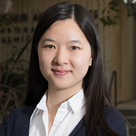Enabling Noninvasive Lipid Profiling with Intermodal Deep Learning
Project Summary
Lipidomics is a rapidly growing area of biomedical research, fueled by the increasing evidence that fatty acid signaling is a major driver of metabolic and inflammatory disease. Phospholipids, fatty acids, and related compounds have pro- and anti-inflammatory effects on diverse pathologies, from traumatic brain injury (TBI), to nonalcoholic fatty liver disease, and a host of cancers across all tissues. Clinically, lipid profiling through liquid biopsy has become an essential diagnostic, but this method lacks any spatial resolution and cannot assess tissue resident changes of any lipid. Currently there are no clinical means to spatially resolve fatty acids or amides without tissue biopsy, leaving medicine blind to these key biomarkers. Raman spectro-microscopy (RS) and Magnetic Resonance Spectroscopy Imaging (MRSI) offer spatial resolution for profiling lipids in live tissues, but these methods are both sub-optimal in distinct ways. The limitations of light, however, prevent clinical applications of RS in patients. Integrating the complementary dimensions of information between RS and MRSI could allow full exploitation of their strength of spectroscopy, imaging resolution, and depths in clinical settings.
Due to recent advances in deep learning, this team will attempt previously out of reach multimodal integration. A successful outcome will profoundly impact the future of lipidomics in research and medicine. This project proposes to bridge the comprehensive, high-resolution lipid profiling of RS with the ready human applications of MRSI by developing a deep learning-based data analysis framework. Once trained, the deep learning models can be used to decode accurate lipid levels directly from MRSI data, enabling noninvasive, high-sensitivity, and high-resolution lipid profiling.
Investigators






